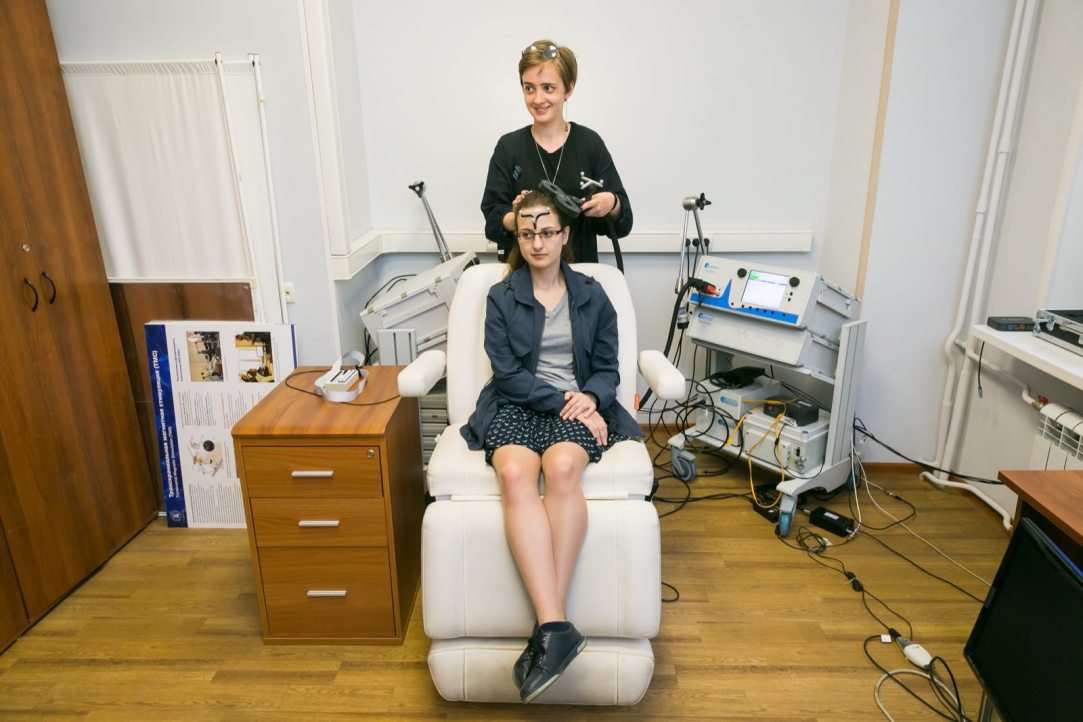Admission to HSE Was a Key Event in My Life
Ekaterina Vasilevskaya is a second year student on the full-time advanced doctoral programme, and also a visiting lecturer at HSE. Since 2016, she has participated in the 'Health Literacy and Its Impact on Weight-Related Behaviors in College Students’ research project at Florida International University, USA. In her interview for the Doctoral School of Psychology, Ekaterina spoke about being admitted to the HSE doctoral programme, and her studies.

HSE School of Psychology Moves to Centre of Moscow
The School of Psychology has moved to Armyansky Pereulok, which was a long-awaited event for HSE psychology students. The school was previously located at one of the university’s more remote campuses on Volgogradsky Prospekt. The HSE Centre for Cognition & Decision Making also made an important move recently, this time into the university’s building on Krivokolenny Pereulok. Below we show and discuss where and how HSE students will be learning starting this September.

Researchers to Predict Cognitive Dissonance according to Brain Activity
A new study by HSE researchers has uncovered a new brain mechanism that generates cognitive dissonance – a mental discomfort experienced by a person who simultaneously holds two or more contradictory beliefs or values, or experiences difficulties in making decisions. The results of the study have been published in the paper ‘Open Access Neural Mechanisms of Cognitive Dissonance (Revised): an EEG Study’in The Journal of Neuroscience.
-%D1%81%D1%87%D0%B0%D1%81%D1%82%D1%8C%D1%8F-%D1%81%D0%BE%D0%B1%D0%B0%D0%BA%D0%B0-%D1%83%D0%BB%D1%8B%D0%B1%D0%B0%D0%BA%D0%B0.jpg)
'Russians May Be Happier Than They Appear, but They Hide It'
A comparative cross-cultural study conducted by the HSE International Laboratory of Positive Psychology of Personality and Motivation has found that Russians tend to be as open with their friends as Americans, but unlike Americans, Russians prefer to hide their happiness when talking to strangers or government officials. These findings were published in the Journal of Cross-Cultural Psychology in the paper Russians Inhibit the Expression of Happiness to Strangers: Testing a Display Rule Model.

Repeating Non-verbs as Well as Verbs Can Boost the Syntactic Priming Effect
According to Glasgow and HSE/Northumbria researchers, repetition of non-verbs as well as verbs can boost the effect of syntactic priming, i.e. the likelihood of people reproducing the structure of the utterance they have just heard.

Scientists Reveal Relationship between Perfectionism and Insomnia
For perfectionists, sleep quality is often far from perfect. However, perfectionism per se seems to be just part of the story; another important factor is a perfectionists' tendency to experience frequent symptoms of anxiety, sometimes for relatively minor reasons. These are the findings made by a team of Russian and UK sleep researchers, published in the January 2017 issue of Personality and Individual Differences journal.
-%D1%81%D0%BE%D0%BD-%D0%BF%D1%8F%D1%82%D0%BA%D0%B8.jpg)
HSE Researchers Uncover Why Morning People Should Not Work at Night
It has been known for a long time that early risers work less efficiently at night than night owls do. But researchers from the Higher School of Economics and Oxford University have uncovered new and distinctive features between the night activities of these two types of individuals. At night, early risers demonstrate a quicker reaction time when solving unusual attention-related tasks than night owls, but these early risers make more mistakes along the way.
Applied Social Psychology Programme Welcomes Ghanaian Student
Although it took some time to adjust initially, after only a short period studying in HSE’s Applied Social Psychology programme, Ghana native Ebenezer Yao Wepari is certain that attending HSE has been among the best decisions he has made in life.

Why Men Find Switching Tasks More Difficult
It has long been known to science that women find it easier than men to switch between tasks. But how exactly their brains function differently in such situations has so far been unclear. Recent research reveals that male brains appear to consume more energy when they need to shift attention. In addition to this, in men there is greater activity in the dorsolateral prefrontal areas of the brain compared to women, as well as activation in some other areas which is not usually observed in women.
Symposium Participants Drawn to Russian Experience
On November 15-16, an international symposium dedicated to childhood and adolescence took place in Moscow in honour of the 120th anniversary of Lev Vygotsky’s birth. Several participants in the symposium, entitled ‘Lev Vygotsky and Modern Childhood’, were especially interested in the unique Russian experience that flowed from the traditions established by the renowned Soviet psychologist.

